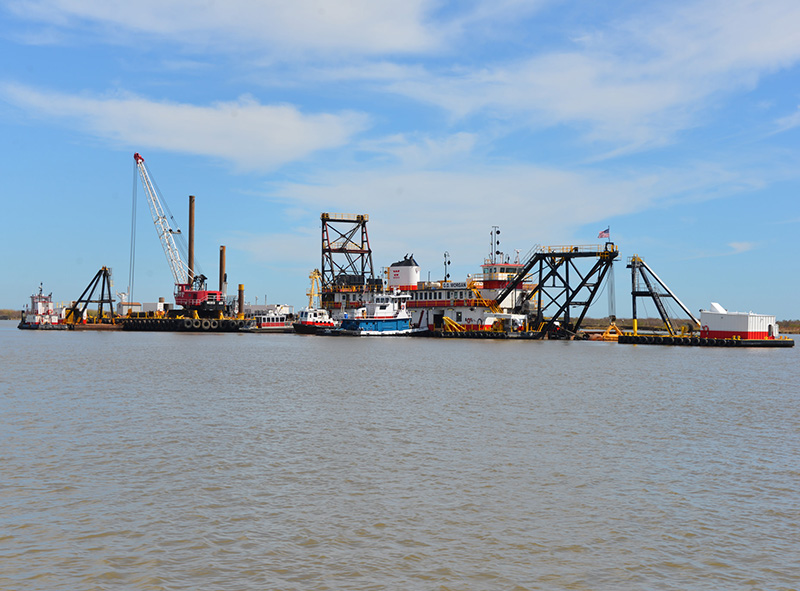Congress has ended a bitter election year on a good note for river shipping and ports, passing a water resources bill that authorizes a number of inland navigation projects and makes it easier to deepen seaports to receive bigger ships.
In one of its last acts before adjourning for the year, the Senate on Saturday approved the Water Infrastructure Improvements for the Nation (WIIN) Act, which includes the Water Resources Development Act (WRDA 2016), by a vote of 78-21. President Obama is expected soon to sign the bill into law.
The bill includes several key priorities of the inland barge industry as it authorizes projects based on final reports for the Calcasieu Lock in Louisiana, the Upper Ohio Navigation System in Pennsylvania, and deepening of Brazos Island Harbor in Texas, part of the Brownsville Ship Channel.
Also important to inland shipping was that the bill does not contain a Public-Private Partnership (P3) provision that would have allowed for the collection of tolls or lockage fees on certain waterways.
The bill also approves a number of flood prevention and ecosystem restoration projects, aid to address safe water quality in communities like Flint, Mich., and programming changes to the way the Army Corps of Engineers delivers navigation projects.
“The passage of the strong policy recommendations in WIIN/WRDA 2016 will help to create and sustain American jobs, increase exports and strengthen the U.S. competitiveness in world markets,” Michael Toohey, president and CEO of the Waterways Council said in a statement.
Of importance to ports, the bill updated for the first time in 30 years the cost share formula used to deepen seaports from 45' to 50' to reflect the growing size of the world’s container fleet. The cost-share for maintenance was updated in WRDA 2014 and this provision makes maintenance and construction cost-share depths consistent.
Specifically, the bill paved the way for Congress to approve funding for deepening the harbors at the Port of Charleston, S.C., and Port Everglades along Florida’s Atlantic coast, in preparation for arrival of megaships that are transiting the widened Panama Canal.
The Charleston project would deepen the port’s entrance from 47' to 54' and the harbor from 45' to 52', making Charleston the deepest harbor on the East Coast. Everglades would be dredged from 42' to 48'.
The law is also significant because it puts WRDA back on a two-year legislative track. WRDA was last passed in 2007 and 2014.
“One of the challenges confronting the inland waterway system and barge transportation is that it is largely out of sight and therefore out of mind for many policymakers,” said Mike Steenhoek, executive director of the Soy Transportation Coalition in Ankeny, Iowa.
“A high percentage of lawmakers do not represent districts that witness barge transportation,” he said. “As a result, the more time that elapses between WRDA bills, the more Herculean it becomes to educate and persuade lawmakers to devote attention to the inland waterways system.”
This authorization legislation is the first step. Congress must next approve spending for these projects.




